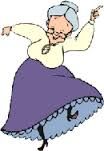
Happiness
Are Old People Really Happier?
Casting a critical eye on the U-shaped curve
Posted December 6, 2014

Much has been made recently of the U-shaped curve of happiness. It was the focus of this month's Atlantic cover story about the mid-life crisis, and just yesterday morning it was featured in an op-ed by New York Times columnist David Brooks called "Why Elders Smile." Brooks's column is currently #1 on the most-emailed list at the Times.
"Older people are more relaxed, on average," Brooks writes. "They are spared some of the burden of thinking about the future. As a result, they get more pleasure out of present, ordinary activities."
I'd like to think that these observations are true. I'd like to think that the happiest years of my life are still ahead of me. But why is it that the fact that the future has become foreshortened and is less soemthing to plan for -- and even to expect -- than it was when I was young, why is that fact something to feel anxious about, rather than to experience it as a freeing of some sort of burden?
Brooks, for instance, quotes from a bunch of books that talk about how much wiser, calmer, kinder, and more intuitive people become as they age. Aging means "learning how not to be too invested in particular outcomes," according to one such book, Lighter As We Go, published just a few months ago. From the way Brooks describes the book, authors Jimmie Holland and Mindy Greenstein seem to think of being old as one big chill-out party.
The trouble is, I haven't really seen that in myself. My objective life is less difficult now than it was when I was in my 40s, with two teenaged daughters and the raft of uncertainty, anxiety, and confict that often involved. But it's also less full. Even as I stressed out about having to be on call for one or the other daughter's needs, or about having the house fill with other teenagers when all I really wanted was the quiet it would take to finish whatever I was writing, or as my husband and I tensely disagreed about how to handle a particular parenting crisis -- even as all that was happening, I was aware that in many ways these were good years, and that I would miss them when they were gone.
They were, and I do.
It's hard to believe that I'm all that different from most people in their sixties. What I think I am, possibly, is just more honest. It's nice to try to be upbeat about the years passing by -- a sort-of-friend recently called it "saging, not aging," and I managed to offend her when I poked fun at both the concept and the phrase -- but I think it's misleading to pretend that the upswing of that U-shaped curve post is really all that common. It doesn't take a particularly negative view of life to feel like the second half is a time of feeling less attractive, less energetic, more invisible, and no longer a vital part of anyone else's life. It's what my mother complains about -- has been complaining about for the past 20 years -- and it's what I'm already noticing is happening to me.
This is not to say that being older is all bad. I've noticed, as others have, a kind of calmness, an understanding of what things really matter, a willingness to let stuff go. It doesn't come easily to me, this Zen attitude of "don't sweat the small stuff . . . and it's all small stuff." But I'm more willing than I used to be to entertain it as a possibility.
If I'm lucky enough to be graced with grandchildren some day, I wonder which attitude I'll adopt about them. People say grandparenting is quite different from parenting -- all of the pleasure, none of the angst. Well, maybe. But I think I've learned to be skeptical enough about what "people say" when it comes to that U-shaped curve of happiness to make me wonder if that's really how I'll do the grandparent bit. I suspect that I'll experience enormous pleasure from grandchildren, but I'll go through my share of angst and anxiety, too. Just the way I did with my daughters. Just the way my 90-year-old mother still does with me.

